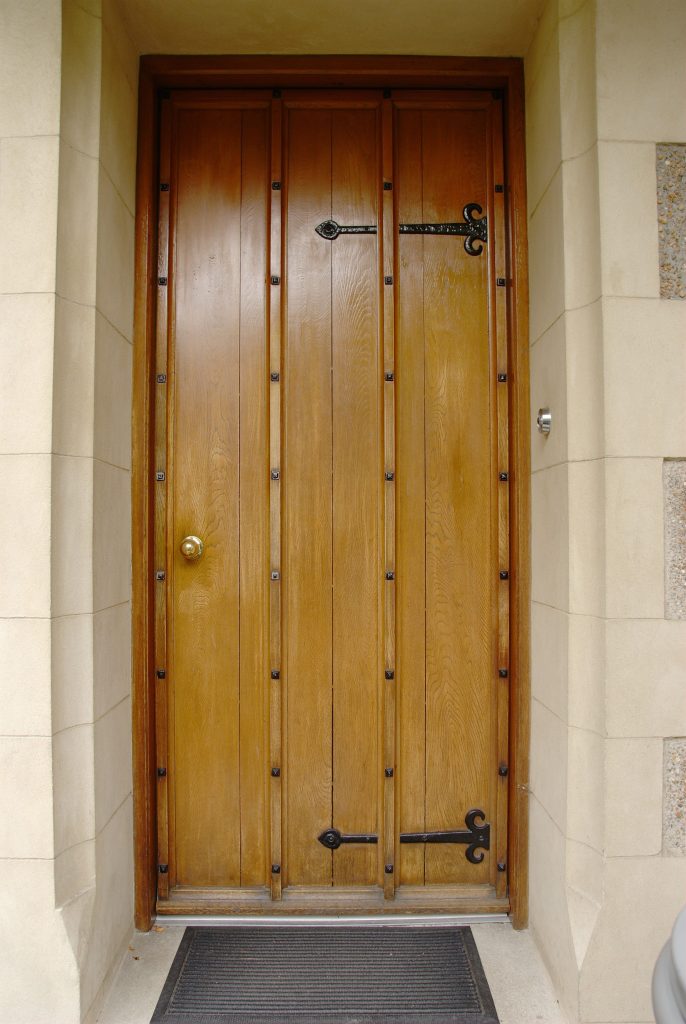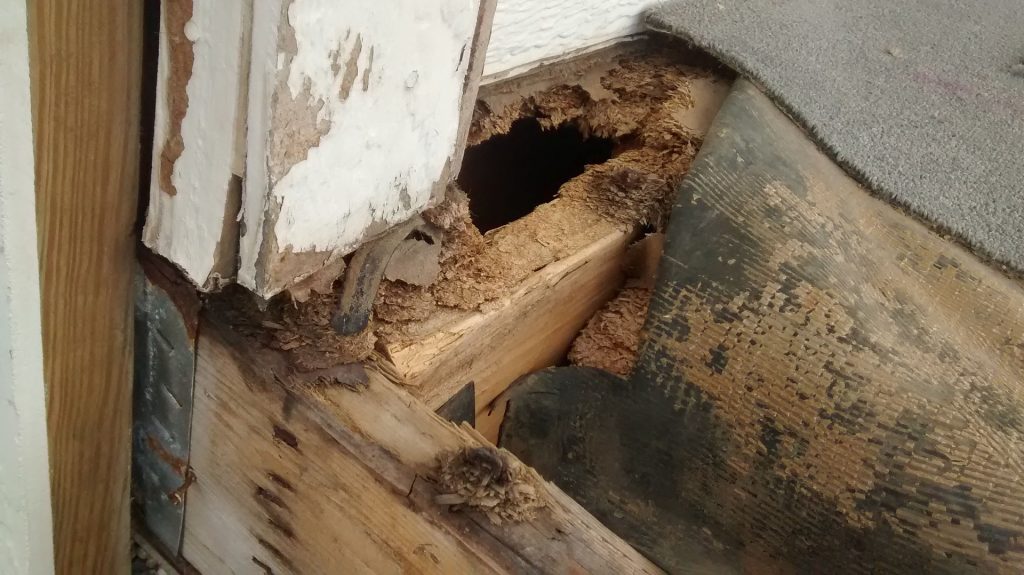 Parents can imagine all sorts of dangerous situations their children could find themselves in walking to school – kidnappings, getting hit by a car, bullying. But what happens if the cause of the injury was a defective sidewalk the city was supposed to maintain? Can the city be held liable? The following case examines the liability of a city when a teenager is injured due to a defective sidewalk in front of her high school.
Parents can imagine all sorts of dangerous situations their children could find themselves in walking to school – kidnappings, getting hit by a car, bullying. But what happens if the cause of the injury was a defective sidewalk the city was supposed to maintain? Can the city be held liable? The following case examines the liability of a city when a teenager is injured due to a defective sidewalk in front of her high school.
While fifteen-year-old Cora Minix was walking to her high school in Rayne, Louisiana, she fell on a sidewalk in front of the school and was injured. Her parents filed a lawsuit against the City of Rayne, claiming the sidewalk’s concrete was cracked and shifted as Minix walked on it, causing her to fall.
The city claimed the sidewalk’s condition was open and obvious and not unreasonably dangerous. At a trial, the court ruled in favor of the City of Rayne, finding the sidewalk’s defect was open and obvious and did not present an unreasonable risk of harm. Further, the city did not have actual or constructive knowledge of the sidewalk’s defect. The Minixes appealed.
 Louisiana Personal Injury Lawyer Blog
Louisiana Personal Injury Lawyer Blog


 Picture this: you’ve just bought a new condo, envisioning a future filled with joyful moments shared with loved ones. But what happens when those dreams are shattered because the condo management company neglects essential repairs for years on end? Robert Jordan, a condo owner, experienced this very nightmare when he encountered a persistent water leak issue in his recently purchased unit. As the battle for justice unfolded, Jordan fought for his rights and the compensation he deserved.
Picture this: you’ve just bought a new condo, envisioning a future filled with joyful moments shared with loved ones. But what happens when those dreams are shattered because the condo management company neglects essential repairs for years on end? Robert Jordan, a condo owner, experienced this very nightmare when he encountered a persistent water leak issue in his recently purchased unit. As the battle for justice unfolded, Jordan fought for his rights and the compensation he deserved. Pregnancy invariably alters a woman’s life. The process is physically demanding and disruptive, but do these challenges entitle a female employee to disability status under the law? According to a recent Slidell, Louisiana lawsuit, pregnancy is not considered a disability under Louisiana employment discrimination law.
Pregnancy invariably alters a woman’s life. The process is physically demanding and disruptive, but do these challenges entitle a female employee to disability status under the law? According to a recent Slidell, Louisiana lawsuit, pregnancy is not considered a disability under Louisiana employment discrimination law.  Dealing with the elements is an inherent part of construction work. Yet, sometimes the elements get unexpectedly unruly. This is where insurance is supposed to step in and compensate for delays or damage. In the following case, however, overlapping insurance policies made determining who should step up difficult.
Dealing with the elements is an inherent part of construction work. Yet, sometimes the elements get unexpectedly unruly. This is where insurance is supposed to step in and compensate for delays or damage. In the following case, however, overlapping insurance policies made determining who should step up difficult.  Aquisitive Prescription. It is a strange-sounding set of words, yet it can be vital in proving ownership of land and property in Louisiana. What exactly is it? The subsequent lawsuit helps answer that question and the following one: How can I prove ownership of land through acquisitive prescription in Louisiana?
Aquisitive Prescription. It is a strange-sounding set of words, yet it can be vital in proving ownership of land and property in Louisiana. What exactly is it? The subsequent lawsuit helps answer that question and the following one: How can I prove ownership of land through acquisitive prescription in Louisiana? Some doors, such as bathroom doors, are heavy and have quick automatic closing mechanisms attached. If a door of that nature hits you in the back on your way and knocks you down, who is liable? The following case out of New Orleans shows how courts deal with door-closing mechanisms and trip-and-fall lawsuits.
Some doors, such as bathroom doors, are heavy and have quick automatic closing mechanisms attached. If a door of that nature hits you in the back on your way and knocks you down, who is liable? The following case out of New Orleans shows how courts deal with door-closing mechanisms and trip-and-fall lawsuits.  When another or a company’s actions harm a person, he is entitled to financial relief under Louisiana law. The law also requires proof of damages to prove entitlement to monetary compensation. Damages are proven by submitting facts to a trial court. Sometimes the parties agree upon the facts, and sometimes they are disputed.
When another or a company’s actions harm a person, he is entitled to financial relief under Louisiana law. The law also requires proof of damages to prove entitlement to monetary compensation. Damages are proven by submitting facts to a trial court. Sometimes the parties agree upon the facts, and sometimes they are disputed.  Tripping over a ledge in public can be both embarrassing and painful. Sometimes the fall can result in serious injuries. Who should be at fault for any damages sustained? As with many legal issues, it depends. Unfortunately for one woman in Covington, Louisiana, the apparent nature of the ledge, coupled with her own activities contributing to the fall, led the Louisiana First Circuit Court of Appeal to dismiss her case.
Tripping over a ledge in public can be both embarrassing and painful. Sometimes the fall can result in serious injuries. Who should be at fault for any damages sustained? As with many legal issues, it depends. Unfortunately for one woman in Covington, Louisiana, the apparent nature of the ledge, coupled with her own activities contributing to the fall, led the Louisiana First Circuit Court of Appeal to dismiss her case.  What would you do if you were heir to property and found out the City had issued a demolition order for that property? A recent case decided in New Orleans discusses that question. The City of New Orleans, Louisiana, brought administrative proceedings against property owners whose property was allegedly blighted. However, the situation became more complicated because the property owners were deceased.
What would you do if you were heir to property and found out the City had issued a demolition order for that property? A recent case decided in New Orleans discusses that question. The City of New Orleans, Louisiana, brought administrative proceedings against property owners whose property was allegedly blighted. However, the situation became more complicated because the property owners were deceased.  Buying a house and later discovering that the house has foundational defects is a nightmare every homeowner seeks to avoid. Even more unpleasant is to find out that you do not have any recourse against the seller. The nature of such recourse would partially depend on when the defects were discovered, but also whether the seller is a builder, contractor, or manufacturer, because such a status might extend the timeframe of bringing in an action against the seller.
Buying a house and later discovering that the house has foundational defects is a nightmare every homeowner seeks to avoid. Even more unpleasant is to find out that you do not have any recourse against the seller. The nature of such recourse would partially depend on when the defects were discovered, but also whether the seller is a builder, contractor, or manufacturer, because such a status might extend the timeframe of bringing in an action against the seller.